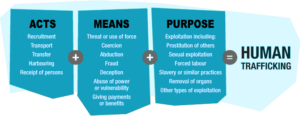Frequently
Asked Questions
Frequently
Asked Questions
FAQ
Sex Work Is...
Not Illegal Per Se
Soliciting in a public place for the purpose of prostitution (Misc Offences Act, Art.19)
Pimping or living on the earnings of a prostitute (Women’s Charter, Art.146)
Owning a brothel (Women’s Charter, Art.148)
Sex Work Is..

Not Illegal Per Se
Soliciting in a public place for the purpose of prostitution (Misc Offences Act, Art.19)
Pimping or living on the earnings of a prostitute (Women’s Charter, Art.146)
Owning a brothel (Women’s Charter, Art.148)
If owning a brothel is illegal, how come there are so many in Geylang?
You have to be between 21-35 years of age
You cannot be Malay or Muslim
You cannot be Male on your ID card (this includes pre-operative transgender persons)
You have to be from a list of approved countries (i.e. China, Malaysia, Thailand, etc)
If owning a brothel is illegal, how come there are so many in Geylang?

In practice, the police regulate and monitor a limited number of brothels.
You have to be between 21-35 years of age
You cannot be Malay or Muslim
You cannot be Male on your ID card (this includes pre-operative transgender persons)
You have to be from a list of approved countries (i.e. China, Malaysia, Thailand, etc)
More About
The Yellow Card
Workers under the yellow card system work full time–up to 6 days a week and compensation has to be provided if more off-days are required. Brothels are to comply with a 100% condom use policy, however, there have been reports of unsafe sexual practices within these brothels. All other sex workers who are not on the yellow card system are considered “illegal”. They are often more vulnerable because they fear being arrested.
More About
The Yellow Card
Workers under the yellow card system work full time–up to 6 days a week and compensation has to be provided if more off-days are required. Brothels are to comply with a 100% condom use policy, however, there have been reports of unsafe sexual practices within these brothels. All other sex workers who are not on the yellow card system are considered “illegal”. They are often more vulnerable because they fear being arrested.
More About
The Yellow Card
Workers under the yellow card system work full time–up to 6 days a week and compensation has to be provided if more off-days are required. Brothels are to comply with a 100% condom use policy, however, there have been reports of unsafe sexual practices within these brothels. All other sex workers who are not on the yellow card system are considered “illegal”. They are often more vulnerable because they fear being arrested.
More Frequently
Asked Questions
The significant imbalance between the customer and the sex worker also led to the perception that sex workers are easy prey and the abuser could inflict violence with a limited risk of repercussion. For instance, a customer physically assaulted a sex worker – he strangled and threatened to kill her if she went to the police. He also stole her entire wallet. She was left with bruises on her arm and chin. After being told by her boss not to make a police report, this incident has made her feel suicidal, hopeless and lonely.
To effectively warn the community about potential abusers, known abusers are logged into our Abuser Alert System and alerts are regularly broadcasted through our In 2021, we handled a total of 109 cases. Among them, 29 were reportable crimes committed against sex workers. Due to the disenfranchisement of sex workers in our society, many are wary of accessing mainstream services for fear of judgement or repercussions. They cited lack of evidence, fear of arrest, long and arduous reporting process, potential exposure of identity, and further threats from agents as the key reasons for not reporting crimes against them. Various private channels. This system is vital in protecting the lives of sex workers.
In 2021, we handled a total of 109 cases. Among them, 29 were reportable crimes committed against sex workers. Due to the disenfranchisement of sex workers in our society, many are wary of accessing mainstream services for fear of judgement or repercussions. They cited lack of evidence, fear of arrest, long and arduous reporting process, potential exposure of identity, and further threats from agents as the key reasons for not reporting crimes against them.
Types of cases we’ve seen in 2021: 7 harrasment/stalking; 5 physical violence/assault; 8 financial violence/non-payment/scam/robbery; 9 sexual violence (stealthing, rape, tech-facilitated). Out of 109, 48 cases involved abusers. Identity of abusers includes: 30 costumers; 7 intimate partner or family; 1 pimp or agent; 1 others.
Read more in detail in our annual reports.
Different people are brought up with different opportunities. More often than not, women enter the sex industry because sex work is the best opportunity available. We see many instances where these women are the main providers for their families, and have to support their parents, partners, and children.
Like any other job (whether blue collar, white collar, or home-based), sex work presents a set of risks which workers must negotiate. Unfortunately, because sex work is so marginalized and sex workers so often discriminated against, the risks that women in the sex industry face are compounded. Many do not feel that they can speak out as they fear being exposed as sex workers.
We hear some people say to sex workers that they are harming themselves, disrespecting themselves, by doing sex work, and as such, they should try to quit to regain dignity. These comments are extremely insensitive and often do more to quash the dignity and self-esteem that sex workers have of themselves. Project X aims to empower and respect the dignity of women in the sex industry. This does not mean that we ignore the dangers and risks that they face. Rather, we aim to centre the needs of women in the sex industry, rather than persecute or judge them for their choices, and support them with the necessary resources and advice so that they can better navigate the challenges they face in life.
Article 3, paragraph (a) of the Protocol to Prevent, Suppress and Punish Trafficking in Persons defines Trafficking in Persons as the recruitment, transportation, transfer, harbouring or receipt of persons, by means of the threat or use of force or other forms of coercion, of abduction, of fraud, of deception, of the abuse of power or of a position of vulnerability or of the giving or receiving of payments or benefits to achieve the consent of a person having control over another person, for the purpose of exploitation. Exploitation shall include, at a minimum, the exploitation of the prostitution of others or other forms of sexual exploitation, forced labour or services, slavery or practices similar to slavery, servitude or the removal of organs.
On the basis of the definition given in the Trafficking in Persons Protocol, trafficking in persons has three constituent elements:

To ascertain whether a particular circumstance constitutes trafficking in persons, consider the definition of trafficking in the Trafficking in Persons Protocol and the constituent elements of the offense, as defined by relevant domestic legislation.
Trafficking is a serious crime. In reflection of this, Singapore passed the “Prevention of Human Trafficking Act 2014” in order to tackle all forms of trafficking—labour, sex, and organ trafficking. Project X similarly condemns trafficking and we do all we can to assist victims of trafficking.
However, from our many years working with the sex industry, we have observed that under current legal definitions — which set a very high bar for what is considered trafficking — only a handful of individuals would be classified as trafficked. Only five sex trafficking and one labour trafficking cases four cases have been prosecuted to date. We also caution against the conflation of human trafficking with sex work. Not all sex workers are trafficked, but the belief that they are tends to undermine and disrespect the consent of sex workers. Further, trafficking occurs across a range of industries, including domestic work and construction, not just the sex industry.
People in the sex industry can face a range of exploitative conditions which are seldom fully captured by the “human trafficking” framework. Many women in the sex industry
choose this work because it is the best option available for them and do not want or need to be “rescued” or “saved.” We extend our services to all sex workers and believe that all sex workers — whether trafficked or not — deserve support and just treatment.
We refer to Juno Mac’s and Molly Smith’s article: “People often think that selling sex must be a horrible job, and many sex workers would agree. However, these sex workers may locate the problem not in sex but in work.” Like any other job, some sex workers like their job, and some do not. Whether or not sex work is enjoyable or fulfilling is less important than the question of whether sex workers work under non-exploitative and fair conditions, where their autonomy and safety is protected.
“It absolutely should be seen as rape when sex workers are conned.” Sex workers are human beings too and like everyone else, have boundaries.
We use the term to recognize that sex work is work, and to respect the labour involved in the work. The word “prostitute” has also evolved into a word with negative connotations and is often used as a derogatory term used to hurt or humiliate someone. We also now use the terms “escort”, “adult services provider”, “pro-domme” etc.
It is hard to put a number on this as many are informal and indirect sex workers. According to a study conducted by the Saw Swee Hock School of Public Health, there are about 4200 female sex workers in Singapore at any one time. Of this number, there are about 800 to 1,000 licensed sex workers in Singapore at any one time. A large majority of them are migrant sex workers. In 2014, the police arrested 4,886 sex workers and in 2016, 2,947. Singaporean sex workers make up a minority here.
According to Vanessa Ho, the executive director of Project X, “stigma, discrimination, criminalisation” all work to drive sex workers underground and thus make them “reluctant to accessing healthcare services” due to the fear of being identified by local authorities. As such, while we can roughly estimate the number of informal sex workers, we cannot put a number on the exact population of informal sex workers in Singapore.
People who do sex work come from all walks of life. There is no single ethnicity, nationality, gender, age, or sexual orientation which determines whether someone is a sex worker or not. We work with both cis and trans, female and male sex workers. Gender non-conforming sex workers tend to face unique difficulties such as aggravated social discrimination and difficulty finding other employment.
Project X has been in operation since November 2008 and all this information is gathered from speaking to workers and various agencies.
More Frequently Asked Questions
The stigmatisation of sex work has dehumanised sex workers to a considerable extent, thus many abusers reject the notion that sex workers have agency and rights. The cases often involve people who would commit wage theft – many refused to pay sex workers for their services, and some even resorted to blackmailing and extortion. Sex workers sometimes find themselves being subjected to tech-facilitated sexual violence (TFSV), where customers would leak photos or videos of them without their consent.
The significant imbalance between the customer and the sex worker also led to the perception that sex workers are easy prey and the abuser could inflict violence with a limited risk of repercussion. For instance, a customer physically assaulted a sex worker – he strangled and threatened to kill her if she went to the police. He also stole her entire wallet. She was left with bruises on her arm and chin. After being told by her boss not to make a police report, this incident has made her feel suicidal, hopeless and lonely.
To effectively warn the community about potential abusers, known abusers are logged into our Abuser Alert System and alerts are regularly broadcasted through our various private channels. This system is vital in protecting the lives of sex workers. In 2021, we handled a total of 109 cases. Among them, 29 were reportable crimes committed against sex workers. Due to the disenfranchisement of sex workers in our society, many are wary of accessing mainstream services for fear of judgement or repercussions. They cited lack of evidence, fear of arrest, long and arduous reporting process, potential exposure of identity, and further threats from agents as the key reasons for not reporting crimes against them.
In 2021, we handled a total of 109 cases. Among them, 29 were reportable crimes committed against sex workers. Due to the disenfranchisement of sex workers in our society, many are wary of accessing mainstream services for fear of judgement or repercussions. They cited lack of evidence, fear of arrest, long and arduous reporting process, potential exposure of identity, and further threats from agents as the key reasons for not reporting crimes against them.
Types of cases we’ve seen in 2021: 7 harrasment/stalking; 5 physical violence/assault; 8 financial violence/non-payment/scam/robbery; 9 sexual violence (stealthing, rape, tech-facilitated). Out of 109, 48 cases involved abusers. Identity of abusers includes: 30 costumers; 7 intimate partner or family; 1 pimp or agent; 1 others. Read more in detail in our annual reports.
Article 3, paragraph (a) of the Protocol to Prevent, Suppress and Punish Trafficking in Persons defines Trafficking in Persons as the recruitment, transportation, transfer, harbouring or receipt of persons, by means of the threat or use of force or other forms of coercion, of abduction, of fraud, of deception, of the abuse of power or of a position of vulnerability or of the giving or receiving of payments or benefits to achieve the consent of a person having control over another person, for the purpose of exploitation. Exploitation shall include, at a minimum, the exploitation of the prostitution of others or other forms of sexual exploitation, forced labour or services, slavery or practices similar to slavery, servitude or the removal of organs.
On the basis of the definition given in the Trafficking in Persons Protocol, trafficking in persons has three constituent elements:

To ascertain whether a particular circumstance constitutes trafficking in persons, consider the definition of trafficking in the Trafficking in Persons Protocol and the constituent elements of the offense, as defined by relevant domestic legislation.
Trafficking is a serious crime. In reflection of this, Singapore passed the “Prevention of Human Trafficking Act 2014” in order to tackle all forms of trafficking—labour, sex, and organ trafficking. Project X similarly condemns trafficking and we do all we can to assist victims of trafficking.
However, from our many years working with the sex industry, we have observed that under current legal definitions — which set a very high bar for what is considered trafficking — only a handful of individuals would be classified as trafficked. Only five sex trafficking and one labour trafficking cases four cases have been prosecuted to date. We also caution against the conflation of human trafficking with sex work. Not all sex workers are trafficked, but the belief that they are tends to undermine and disrespect the consent of sex workers. Further, trafficking occurs across a range of industries, including domestic work and construction, not just the sex industry.
People in the sex industry can face a range of exploitative conditions which are seldom fully captured by the “human trafficking” framework. Many women in the sex industry choose this work because it is the best option available for them and do not want or need to be “rescued” or “saved.” We extend our services to all sex workers and believe that all sex workers — whether trafficked or not — deserve support and just treatment.
We use the term to recognize that sex work is work, and to respect the labour involved in the work. The word “prostitute” has also evolved into a word with negative connotations and is often used as a derogatory term used to hurt or humiliate someone. We also now use the terms “escort”, “adult services provider”, “pro-domme” etc.

